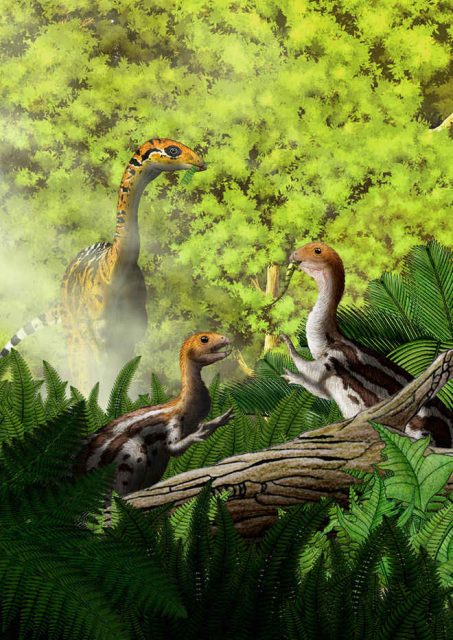MI weekly selection #212

Ostrich-like dinosaur species lost teeth by age 3
A species of dinosaur similar to modern ostriches had teeth when it was young but lost them as it grew older, essentially causing it to become an herbivore after starting life as either an omnivore or carnivore. This discovery about Limusaurus inextricabilis, which lived about 160 million years ago, could help researchers better understand how birds developed beaks and why they are toothless.
As Earth cooled, heat-loving enzymes learned to adapt
Warmth-craving enzymes found a way to adapt to Earth’s cooling temperatures billions of years ago to sustain essential chemical reactions. Researchers examined the evolutionary history of the adenylate kinase enzyme to see how it might have adapted to changing temperatures.
50,000-person exome sequencing study looks at heart risks
A study of electronic health records and exome sequencing data of more than 50,000 patients estimates that about one in 250 people carry a genetic variant that may increase their risk for heart attack and stroke but are not receiving appropriate treatment.
Extremely effective Ebola vaccine developed
An Ebola vaccine, rVSV-ZEBOV, has been developed that appears to be 100% effective in human trials. The trial was held in Guinea and involved more than 11,000 participants.
GoLIVE helps NASA researchers study ice-flow changes
A software tool funded by NASA uses historical satellite images of Earth’s surface and high-resolution images currently taken every 16 days by the Landsat 8 satellite and compares them to find subtle changes in ice flow. Researchers take the data and create computer models to help predict possible future ice-flow behavior.